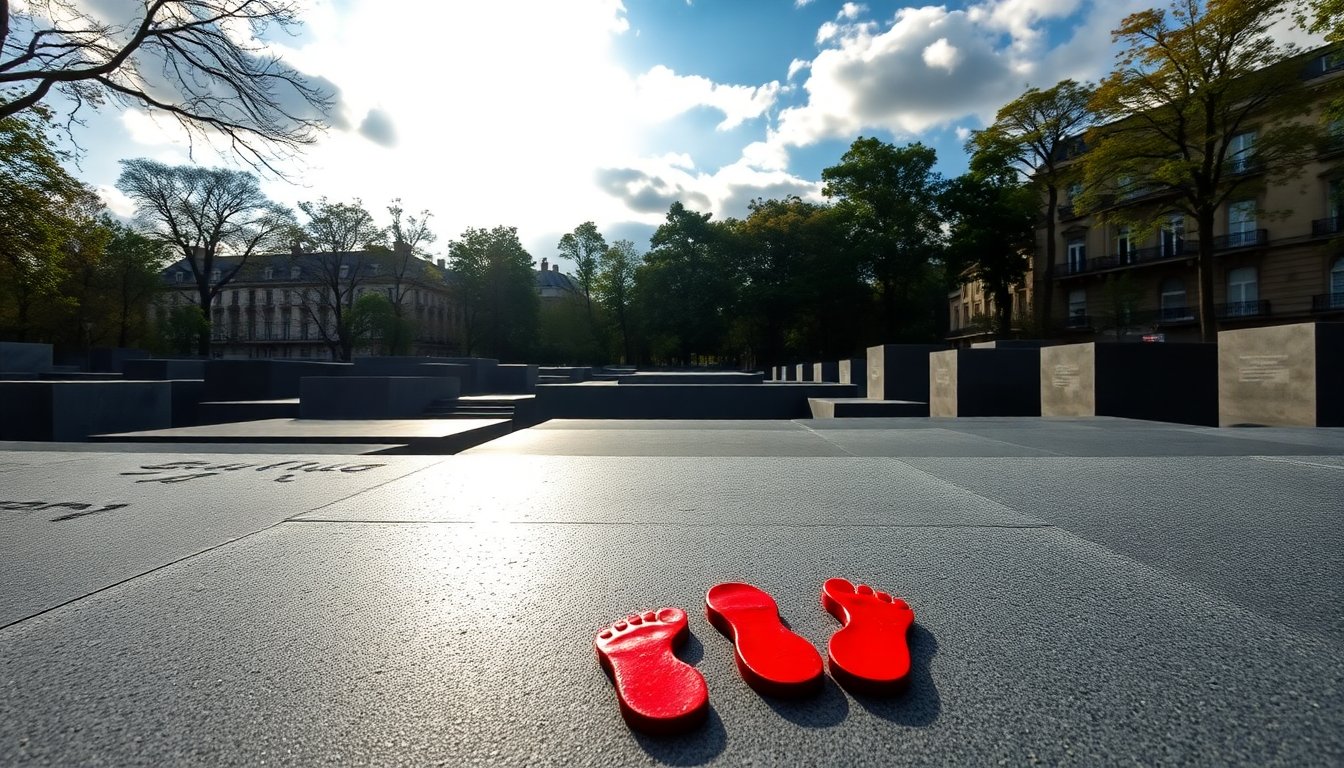Table of Contents
In a landmark trial, a Paris court has convicted four Bulgarian nationals for their involvement in vandalizing the Holocaust memorial in May. This case is pivotal as it marks the first legal action related to a series of suspected Russian hybrid warfare operations targeting Western democracies. The incident involved the application of red handprints on the memorial, raising concerns regarding foreign interference in France.
The court proceedings unveiled the organized nature of the vandalism, described by the judge as a maneuver with hostile intentions aimed at exacerbating divisions within French society. The four defendants received significant prison sentences, reflecting the seriousness of their actions and the broader implications of such foreign interference.
Details of the operation
During the trial, it was revealed that the act of vandalism was part of a coordinated operation orchestrated from abroad. The court learned that the defendants received instructions via social media platforms, specifically Telegram, which is often utilized for clandestine communications. This method of operation suggests a well-planned initiative aimed at destabilizing the social fabric of France.
Insights from the trial
One of the accused, Nikolay Ivanov, was identified as a key figure in the group, allegedly coordinating the operation from Bulgaria. His connections to pro-Russian elements and past communications with suspected spies raised alarms about the motivations behind the vandalism. While Ivanov claimed he was misled, the prosecution painted a different picture, emphasizing the calculated nature of the actions taken against a national symbol.
The other defendants admitted their roles in the graffiti incident but maintained that their involvement was not driven by any antisemitic motives. Georgi Filipov, another member of the group, expressed regret during the trial, stating that his actions were primarily motivated by financial need. He acknowledged being paid for his participation, highlighting the role of economic incentives in such operations.
Broader implications of the case
This trial is not an isolated incident but part of a larger investigation into a series of similar acts targeting Jewish sites across France. Following the May vandalism, authorities have identified at least eight other cases where foreign nationals were involved in acts of vandalism, which prosecutors link to Russian influence campaigns aimed at creating discord.
The French government has recently adapted its legal framework to address foreign interference more effectively, particularly in light of increasing evidence of external manipulation in domestic affairs. This legal evolution is a direct response to the growing threats posed by hybrid warfare tactics, which often employ proxy actors to conduct operations that sow confusion and unrest.
Community reactions
The vandalism at the Holocaust memorial has reverberated deeply within the community, prompting outrage and a call for greater protection of such historical sites. Jacques Fredj, the director of the memorial, described the tagging of red hands as a significant emotional blow for Holocaust survivors and their families. The impact of this act extends beyond the physical damage, touching on the collective memory and respect for history.
As the trial continues, the wider implications of these actions are being scrutinized, with many calling for a rigorous examination of how foreign interference can be curbed. French authorities are aware that these incidents are part of a broader trend and are actively seeking ways to strengthen the resilience of their democratic institutions against such threats.


